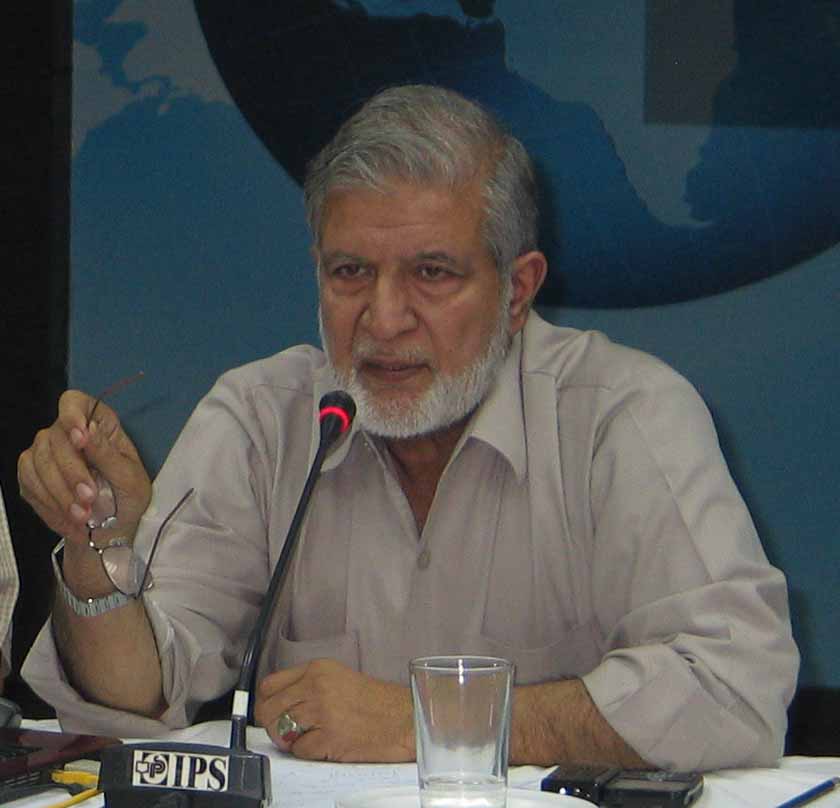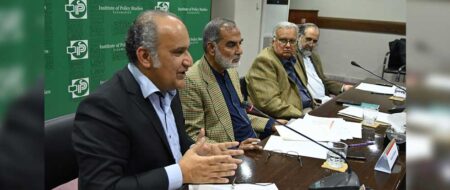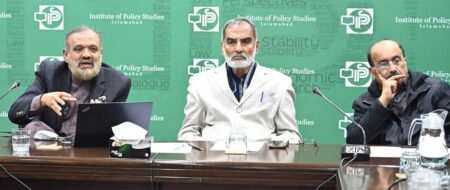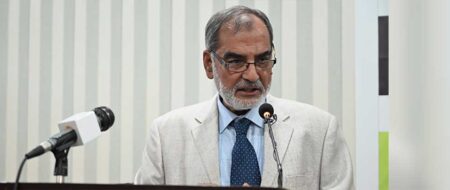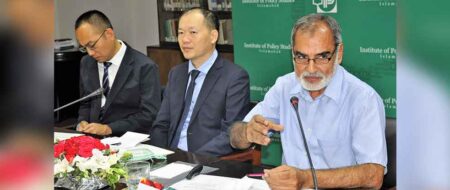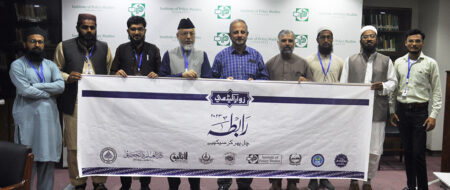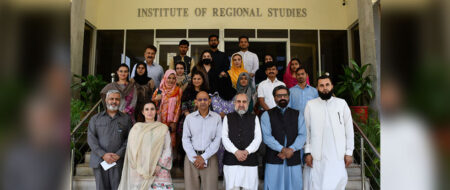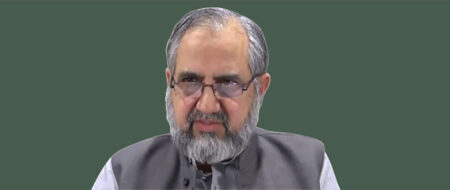Power Sector Reforms: Current Situation, Future outlook and Road to Sustainability
Under IPS Energy Program to formulate policy recommendations and suggest reforms in the power sector of Pakistan to mitigate current energy crisis of the country, a roundtable discussion on “Power Sector Reforms: Current Situation, Future outlook and Road to Sustainability” was organized on May 23, 2012.
Under IPS Energy Program to formulate policy recommendations and suggest reforms in the power sector of Pakistan to mitigate current energy crisis of the country, a roundtable discussion on “Power Sector Reforms: Current Situation, Future outlook and Road to Sustainability” was organized on May 23, 2012.
Salahuddin Rifai, former GM, NTDC and senior advisor NEPRA was the key note speaker while the session was chaired by former member NEPRA Abdul Rahim Khan and Ameena Sohail, lead person of the IPS energy program was the moderator. A select gathering of retried and serving senior government officials, researchers, policy analysts, and representatives of civil society were the participants of the session.
Salahuddin Rifai gave a detailed overview of the power sector of the country and highlighted the landmarks of the sector since its establishment. He informed the participants that at the time of independence Pakistan was producing 50 MW of electricity and there was no electricity for industry, agriculture and commercial consumers at that time, however, he maintained that are 11,000 to 12,000 MW electricity was being generated at present but the country is facing the shortage of 5,000 MW.
 |
 |
He observed that mismanagement of the respective governments in the power sector resulted into the power crisis which augmented corruption and caused poor governance that halted the structure of the power sector. Referring to the USAID’s programme for improving the capacity of Wapda’s generation plants (Genco), he remarked that the project needed a separate dollar account for each Genco, which was approved in principle by the federal government, however despite the lapse of more than two years the central bank and the finance ministry has not given formal permission to open up the foreign currency accounts due to which the much needed aid has not been received.
Indigenous coal and hydel resources were not explored and increasing dependence on furnace oil for production of electricity aggravated the issue of circular debt. The issue will not be resolved until and unless PEPCO recovers the payable amount of 375 bn rupees, he added.
Participating in the discussion Khalid Javed, founding managing director of PPRA noted that as per his calculations around $30bn was needed to mitigate the current energy crisis.
Amanullah Khan suggested that there should be legal reforms to facilitate private power producers and small solar units for power production should be given on easy installments to the domestic consumers to decrease the power load of domestic consumer.
DG-IPS Khalid Rahman said that revamping the whole system was not a big task if the trust deficit in the governance system, especially in the power sectors itself was removed. Sector can attract investments from the local and foreign investors if structural reforms made in the system and let the system run independently without political interference in the system.
 |
 |
 |
|
“The governance issues required to address rather than structural, the main issue is investment in the power sector as the investors are more worried about their returns if the governance issues are not resolved,” Abdul Rahim Khan, former member NEPRA said, chairing the session.
“Giving permissions to the furnace oil based RPPs to operate under the policy was itself a major flaw in the policy as any fastest oil based plant would take at least one and a half year to start operations,” Mr Khan said, adding, “The fast track policy for the rental plants was suitable only for gas operated units.
He concluded that, to improve the power sector the government interference has to be reduced to a minimum and the electricity regulator NEPRA should be made more independent and autonomous agency.
He appreciated the IPS Energy Program on organizing a highly informative and lively session on the issue and hoped that the discussion will reach at policy making and would positive impact on forthcoming policies in respective sector.


